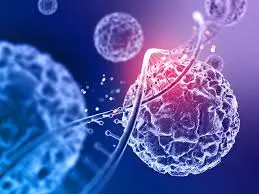Oncology

Comprehensive Cancer Care: Expertise in Oncology and Hematology
As a medical oncologist specializing in the treatment of solid tumors, hematological malignancies, and hematology, my practice is dedicated to providing holistic, evidence-based care for cancer patients. From early diagnosis to advanced cancer treatment, and from curative therapies to palliative care, the goal is to ensure every patient receives world-class oncology care delivered with compassion and tailored to their unique needs.
We works with specialists who focus on diagnosing and managing cancer of the breast, lung, ovary, and hematologic cancers. Any successful management of cancer involves early diagnosis and JP Nagar oncologists sharpen their tools to encompass the latest in diagnostic tools, such as PET-CT, MRI scans, and enhanced biopsies
This detailed overview highlights the specialization, various treatment modalities, and the principles guiding the care provided. The ultimate aim is to not only treat the disease but also support patients and their families throughout their cancer journey.
Expertise in Oncology and Hematology
Solid Tumors
Solid tumors account for the majority of cancers, including breast, lung, colorectal, prostate, liver, and pancreatic cancers. Treatment strategies for solid tumors vary depending on their location, stage, and molecular characteristics. Advances in cancer research have introduced precision medicine approaches, enabling treatments that are tailored to target specific mutations or pathways in the tumor.
Key areas of focus in solid tumor treatment include:
- Breast Cancer: The use of targeted therapies like HER2 inhibitors and hormone therapy for hormone-receptor-positive cancers.
- Lung Cancer: Management strategies, including immunotherapy and targeted therapies for EGFR, ALK, and ROS1 mutations.
- Gastrointestinal Cancers: Multimodal approaches combining surgery, chemotherapy, and biologics.
Hematological Malignancies
Cancers of the blood, such as leukemia, lymphoma, and multiple myeloma, differ significantly from solid tumors in their biology and treatment. These malignancies often require systemic therapies due to the widespread nature of the disease.
Highlights of hematological malignancy treatment:
- Acute and chronic leukemias: Intensive chemotherapy protocols and targeted agents like BCR-ABL inhibitors in chronic myeloid leukemia.
- Lymphomas: Ranging from aggressive forms like diffuse large B-cell lymphoma to indolent variants such as follicular lymphoma, treatments include chemotherapy, monoclonal antibodies, and stem cell transplantation.
- Multiple Myeloma: Novel agents like proteasome inhibitors, immunomodulators, and monoclonal antibodies are revolutionizing care.
Hematology and Supportive Care
In addition to malignancies, expertise in hematology allows for the management of cancer-related blood disorders, such as anemia, thrombocytopenia, and clotting disorders, ensuring comprehensive care for patients undergoing cancer treatment.
Modalities of Cancer Treatment
Effective cancer treatment often requires a combination of modalities. Each treatment is carefully chosen based on factors such as the type and stage of cancer, the patient’s overall health, and treatment goals.
1.Chemotherapy
Chemotherapy remains a cornerstone of cancer treatment. By using drugs to destroy or inhibit the growth of cancer cells, chemotherapy is highly effective in managing a wide range of cancers.
Delivery Methods:
- Intravenous (IV) infusion: The most common method, allowing drugs to enter the bloodstream and reach all parts of the body.
- Oral chemotherapy: Offers the convenience of home-based treatment for select cancers.
- Regional chemotherapy: Directly delivered to a specific area, such as the abdomen or liver, to minimize systemic side effects.
Mechanism of Action:
Chemotherapy targets rapidly dividing cells, a hallmark of cancer. However, this also affects healthy dividing cells, such as those in the bone marrow, digestive tract, and hair follicles, leading to side effects like fatigue, nausea, and hair loss. Advances in anti-nausea medications and supportive care have significantly improved the tolerability of chemotherapy.
Use in Cancer Management:
- Adjuvant therapy: Administered after surgery to eliminate microscopic residual disease.
- Neoadjuvant therapy: Given before surgery to shrink tumors, making them easier to remove.
- Palliative therapy: Used in advanced stages to relieve symptoms and improve quality of life.
2.Targeted Therapy
Targeted therapies have revolutionized cancer treatment by focusing on specific molecules or pathways critical to cancer cell survival and growth.
How It Works:
These therapies are designed to interfere with cancer at the molecular level, sparing normal cells and reducing side effects. Examples include tyrosine kinase inhibitors and monoclonal antibodies targeting HER2, VEGF, or EGFR.
Applications:
- Used in cancers with identifiable mutations or biomarkers.
- Commonly applied in breast cancer (HER2-positive), lung cancer (EGFR mutations), and colorectal cancer (KRAS mutations).
3.Immunotherapy
Immunotherapy leverages the patient’s immune system to fight cancer. It has shown remarkable success in several cancer types, particularly in advanced and metastatic stages.
Types of Immunotherapy:
- Checkpoint Inhibitors: Block proteins like PD-1 and CTLA-4, enabling the immune system to recognize and attack cancer cells.
- CAR T-cell Therapy: Engineered T cells are infused into the patient to target and destroy cancer cells.
- Cancer Vaccines: Help stimulate the immune system to prevent or treat cancer.
Advantages:
Immunotherapy offers durable responses and has changed the landscape of oncology, especially for cancers like melanoma, non-small-cell lung cancer, and certain lymphomas.
4.Hormonal Therapy
Hormonal therapy is an essential modality in treating cancers driven by hormonal imbalances, such as breast and prostate cancers.
Mechanism:
- Blocking hormone receptors or reducing hormone levels slows or stops cancer growth.
- Drugs like tamoxifen and aromatase inhibitors are used in breast cancer, while androgen deprivation therapy is a cornerstone of prostate cancer management.
5.Bone Marrow Transplantation
Bone marrow transplantation (BMT) is a specialized procedure used primarily in hematological malignancies.
Types of Transplants:
- Autologous Transplant: The patient’s own stem cells are collected, treated, and reinfused.
- Allogeneic Transplant: Stem cells are collected from a donor, offering potential cures for aggressive blood cancers.
Indications:
Used in acute leukemias, multiple myeloma, and relapsed lymphomas, among others. BMT is often combined with high-dose chemotherapy for maximum efficacy.
Palliative Care and Symptom Management:
Palliative care is an integral component of cancer treatment, focusing on improving the quality of life for patients with advanced cancer and those experiencing side effects from treatment.
Pain Management:
Pain is one of the most common and distressing symptoms in cancer patients. Effective pain management is essential for improving quality of life.
Approach to Pain Relief:
- Mild Pain: Managed with non-opioid medications like paracetamol and NSAIDs.
- Moderate to Severe Pain: Treated with opioids such as morphine, fentanyl, or oxycodone.
- Adjuvant Analgesics: Drugs like antidepressants and anticonvulsants are used for neuropathic pain.
Narcotics in Pain Management:
While opioids are crucial in managing severe cancer pain, their use requires careful monitoring to prevent dependence or misuse. Proper titration ensures effective relief while minimizing side effects.
Management of Other Symptoms
In addition to pain, palliative care addresses symptoms such as:
- Fatigue and weakness.
- Nausea and vomiting.
- Shortness of breath.
- Loss of appetite and weight loss.
- Emotional and psychological distress.
End-of-Life Care
For patients with advanced or terminal cancer, end-of-life care focuses on providing comfort and dignity.
Key Aspects of End-of-Life Care:
- Symptom Management: Prioritizing pain relief and addressing other distressing symptoms.
- Emotional and Spiritual Support: Helping patients and families cope with the challenges of terminal illness.
- Communication: Open and honest discussions about prognosis, goals of care, and advance directives.
- Hospice Services: Providing home-based care to ensure patients spend their final days in a familiar, comfortable environment.
A Holistic and Patient-Centered Approach
Cancer care extends beyond medical treatment. It involves addressing the physical, emotional, and social aspects of the disease to ensure patients feel supported throughout their journey.
Multidisciplinary Care
Collaboration with a team of specialists, including surgeons, radiation oncologists, pathologists, palliative care experts, psychologists, and dietitians, ensures comprehensive care.
Patient Education
Empowering patients with knowledge about their diagnosis, treatment options, and expected outcomes helps them make informed decisions.
Affordability and Accessibility
Delivering high-quality care at an affordable cost is a cornerstone of the practice, ensuring no patient is deprived of essential treatment due to financial constraints.
Compassionate Care
A compassionate approach recognizes the emotional and psychological impact of cancer on patients and their families, offering support and empathy at every step.
Cancer care is a complex and evolving field, but at its core lies the unwavering commitment to improving patients’ lives. As a medical oncologist specializing in solid tumors, hematological malignancies, and hematology, my mission is to provide state-of-the-art, comprehensive care while ensuring a compassionate and patient-centered approach.
By combining advanced therapies, meticulous attention to symptom management, and a dedication to affordability, I strive to make a positive difference in the lives of every patient and family I serve. Together, we face cancer with courage, resilience, and hope.
Our Specialist–

